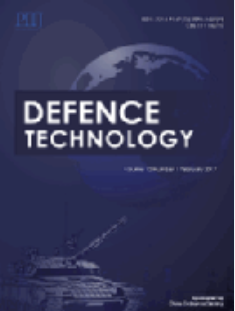Study, development and related application of a miniature compact pulsed power supply with high repetition frequency
IF 5
Q1 ENGINEERING, MULTIDISCIPLINARY
引用次数: 0
Abstract
Capacitor-based pulsed power supply (PPS) is widely used in fields related to electromagnetic launch, plasma, and materials' synthesis, modification and processing. As industrial applications place higher requirements on compact and portable pulsed power supplies, the National Key Laboratory of Transient Physics (NKLTP) recently developed a pulsed power supply consisting of a set of compact pulse-forming units (PFU), each with a capacitor energy storage of 220 kJ. This integrated PPS comes with a complete system configuration, a miniature compact structure, a high rate of repetition, and high power, with energy storage density exceeding 1.2 MJ/m3. This paper describes the device-level design of the unit, the system layout, the control system, the thermal management system, and the experimental results of the pulsed power supply. The experimental results verified the good reliability of the PPS at high repetition rates with each unit module delivering an output current of more than 100 kA. Additionally, flexible current pulse shapes can be formed by setting the charging voltage and the trigger sequence of the PFUs. The pulse forming network (PFN) developed from these PFUs was successfully applied to electromagnetic launch.
高重复频率微型紧凑脉冲电源的研究、开发及相关应用
基于电容的脉冲电源广泛应用于电磁发射、等离子体以及材料的合成、改性和加工等领域。由于工业应用对紧凑和便携式脉冲电源提出了更高的要求,瞬态物理国家重点实验室(NKLTP)最近开发了一种脉冲电源,由一组紧凑的脉冲形成单元(PFU)组成,每个脉冲形成单元的电容储能为220 kJ。该集成PPS具有完整的系统配置,微型紧凑的结构,高重复率和高功率,能量存储密度超过1.2 MJ/m3。本文介绍了该装置的器件级设计、系统布局、控制系统、热管理系统以及脉冲电源的实验结果。实验结果验证了PPS在高重复频率下的良好可靠性,每个单元模块的输出电流超过100 kA。另外,通过设置充电电压和pfu的触发顺序,可以形成灵活的电流脉冲形状。在此基础上研制的脉冲形成网络(PFN)已成功应用于电磁发射。
本文章由计算机程序翻译,如有差异,请以英文原文为准。
求助全文
约1分钟内获得全文
求助全文
来源期刊

Defence Technology(防务技术)
Mechanical Engineering, Control and Systems Engineering, Industrial and Manufacturing Engineering
CiteScore
8.70
自引率
0.00%
发文量
728
审稿时长
25 days
期刊介绍:
Defence Technology, a peer reviewed journal, is published monthly and aims to become the best international academic exchange platform for the research related to defence technology. It publishes original research papers having direct bearing on defence, with a balanced coverage on analytical, experimental, numerical simulation and applied investigations. It covers various disciplines of science, technology and engineering.
 求助内容:
求助内容: 应助结果提醒方式:
应助结果提醒方式:


